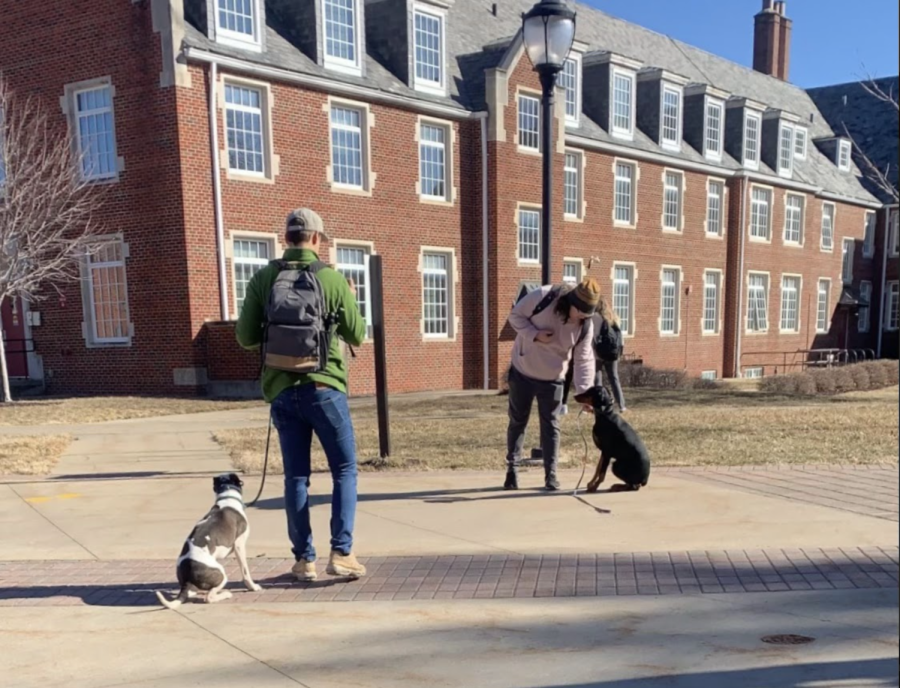Faculty pet policy on campus
Simpson College has restructured the pet policy for faculty on campus.
March 1, 2023
Simpson College has restructured the pet policy for faculty on campus. The Student Government Association (SGA) discussed this topic on Feb. 15. The main concern about pets in the classroom was due to the allergies students could experience.
Student Body Vice President Scott Krueger gave insight as to why the change to the pet policy was taking place, which will result in professors having to submit paperwork and insurance before they can bring dogs into their office. They must also notify students when the pets are going to be there.
“Our main concern was with allergies that students experience from pets as well as professors’ doors possibly being closed,” Krueger said.
Biology Professor Amy Doling has had her dog in her office before and has made arrangements to accommodate the new policy.
“After receiving information from Professor Doling, we understood that, at least in Carver’s policy on the subject, office doors would not be closed but instead gated and students could meet the professor in an alternative spot,” Krueger said.
With there being measures already taken for vacuuming to be provided when a pet enters the facilities, it seems as if the risk of student allergies will be limited.
This policy has been used by several faculty members so far, but it appears to vary from building to building.
“Right now, it sounds like this is a trial run to see if this policy can be implemented in the long term,” Krueger said.
There is not currently enough information about how long the process will take for faculty to get their dogs approved to be on campus.
“We do know that so far, six faculty/staff are allowed to have their pets in their offices,” Krueger said.
Sophomore, Caden Rehmeier, gave his thoughts on whether having pets in the classroom would affect him.
“I love animals and pets, so I believe that having them in the classroom would have a positive impact on my working ability,” Rehmeier said.
Krueger also had a similar opinion on how pets would impact him in the classroom.
“Pets usually make daily interactions a little easier and can help break the ice between students who don’t know their professors very well yet. I have never been in an experience that couldn’t be improved with a dog,” Krueger said.
Rehmeier has yet to see any of his professors have a dog in the classroom yet but is not opposed to the idea.
“I would definitely enjoy seeing more teachers bring their pets to class. Pets are awesome and could definitely be something that helps the students relate to the professors,” Rehmeier said.
Krueger understands his fellow SGA members’ concerns with having pets in facilities but hopes that this policy will ease their minds.
“I do understand my fellow students’ concerns that we discussed in SGA, but if this policy is as careful as the faculty in Carver describe it to be, then it should be good going forward,” Krueger said.
















